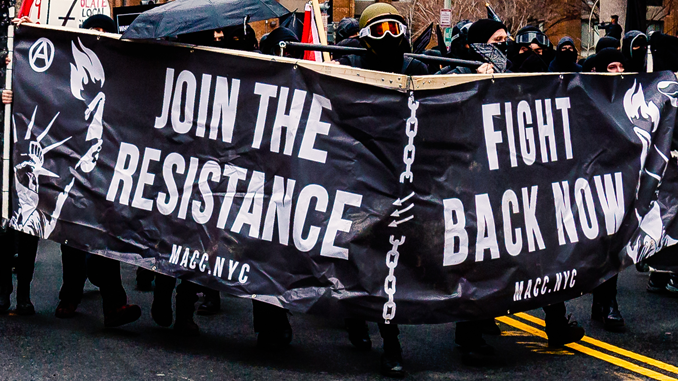
The Washington Post reports that new guidance provided by the Office of Special Counsel this weeks warns federal employees that advocating for impeachment or talking about the “Resistance” at work could be considered prohibited political activity and a violation of the Hatch Act.
Henry Kerner, a Trump appointee, runs the Office of Special Counsel, which is responsible for enforcing the Hatch Act. The Hatch prohibits political activity by federal employees in the course of their job.
The unsigned document uses a question and answer format to explain the types of actions, such as criticism or praise of a political party, the use of the terms “resist” and “resistance”, or advocating for impeachment, that could be deemed prohibited activity.
The guidance provided on Tuesday states that criticism or praise aimed at the success or failure of a political party would be considered political activity but that it is more likely to be a violation in the run up to an election. The Office of Special Counsel stated that employees must be careful about criticizing or praising a candidate for partisan office when on duty.
As to the question of whether the terms or hashtags “resist” or “resistance” are considered political activity, the document states “to the extent the statement relates to the resistance of President Donald J Trump usage of the terms” are considered political activity now that President Trump is running for reelection. An example of a non-political activity of an employee posting “I must #resist the temptation to eat another donut from the break room” on social media was given but the document points out that, in isolation, the usage of the hashtags #resist and #resistTrump, will be presumed to be violations of the Hatch Act.
The memo also states that advocating for the impeachment of the president or vice president is a violation of the Hatch Act because it is “clearly directed at the failure that candidate’s campaign for federal office”. Likewise, advocating against the impeachment of a candidate would be considered political activity.
Government watchdogs, such as American Oversight, say that these guidelines will affect the millions of federal, state and local government employees. In a letter to the Office of Special Counsel, American Oversight expresses “significant concerns” and asks that the memo be withdrawn.
The Office of Special Counsel’s new guidance goes too far and opens a dangerous door for the Trump administration to crack down on dissent. Making it illegal to advocate for or against impeachment of Donald Trump or to resist administration policies like family separation or the Muslim ban could operate as a gag order against whistleblowers and impinge on the constitutional rights of public employees.
Austin Evans, Executive Director of American Oversight
American Oversight’s executive director, Austin Evans, is particularly concerned with the impact of the guidelines on whistle-blowers. He wrote that the Hatch Act “bars public servants from engaging in partisan political activities while on duty but does not prohibit them from speaking out as citizens against illegality or bad policy. Indeed, the oath to uphold the Constitution requires them to do so. ” He encouraged the Office of Special Counsel to retract the recent rules and replace them with more nuanced guidelines.
He also acknowledged the importance of the work the OSC does in holding individuals, including current administration officials, accountable for violations of the Hatch Act.
Former OSC employee and director of investigations at the Project on Government Oversight, Nick Schwellenbach, agrees that the OSC’s guidance overreached, according to the Washington Post, and believes that the guidelines could be challenged successfully in court.
“The way OSC has traditionally balanced its enforcement of that statute with the First Amendment is [focused on] supporting a candidate or political party for election. I think once you start talking about more general political views, you’re starting to infringe upon people’s rights,” he said. “This one, I think, goes too far for them. It runs the risk of turning the OSC into an Orwellian enforcer inside the federal workforce.”
Washington Post
